Comparative table of Baybayin variations
In the 19th century Pedro Paterno published this comparative table of the various baybayin variations.
Baybayin the correct term for our pre-Spanish syllabary not “Alibata”.
Mandirigma Research Organization
In the 19th century Pedro Paterno published this comparative table of the various baybayin variations.
Baybayin the correct term for our pre-Spanish syllabary not “Alibata”.
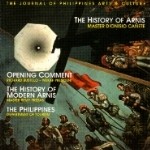
February 28, 1997 By MO1
This article was reprinted with the author’s permission from the Souvenir Edition of Arnisador Magazine published by Goodwill Publications Limited. More information about the magazine can be obtained by calling Peter Morgan in London at +44 (0) 171-895 0800. Saturday, June 1st, 1996 LAMECO: Legacy of Steel By Steve Tarani Swollen knuckles, bleeding forearms and […]
April 10, 1997 By MO1
There is no excerpt because this is a protected post.
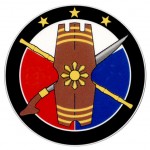
January 10, 1998 By MO1
Kapisanang Mandirigma – A federation of warriors from different disciplines of the Warrior Arts of the Philippines. It is not a style, nor a representation of any singular style, but rather a federation of practitioners with similar goals to provide a vehicle for growth and personal discovery through continued training. Founded in 1998 by Guros […]
May 24, 1998 By MO1
Mandirigma.org - Online Since 1998 Mandirigma Research Organization also known as mandirigma.org is a project of Kapisanang Mandirigma. Their focus includes preserving and promoting the Warrior Arts commonly known as Kali, Eskrima and Arnis. The Warrior Arts is one of the most important aspects of any society because its very nature is to defend and preserve […]

February 21, 1999 By MO1
Baybayin Baybayin is a pre-Spanish Philippine writing system. It is a member of the Brahmic family and is recorded as being in use in the 16th century. It continued to be used during the Spanish colonization of the Philippines up until the late 19th Century. The term Baybay literally means “to spell” in Tagalog. Baybayin […]

May 18, 1999 By MO1
Kapisanang Mandirigma founders Guro Ariel Flores Mosses, Guro Arnold Noche, Guro Bud Balani and Guro Dino Flores mentioned in the Virtual Filipino Martial Arts Museum’s “Top 200 Living Guro’s” List Exerpt from: http://www.filipinomartialartsmuseum.com/index.htm Welcome to the Filipino Martial Arts Museum, the virtual museum and repository of knowledge of Filipino Martial Arts (FMA) systems, styles, […]

February 13, 2000 By MO1
Sticks of Death (Arnis: The Sticks of Death) This Filipino Martial Arts action film features Roland Dantes. Dantes plays Johnny Guerrero, a man who masters the ancient art of arnis with the help of his grandfather to get revenge on a group of crooks who attempted to beat him to death. Using two deadly sticks, […]
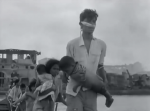
July 1, 2000 By MO1
The Battle of Manila – Starts with discussion from 2 Vets memories of the WW2 Japanese invasion and internment of civilians to the military incursion to rescue the civilian prisoners at Santo Tomas and Battle of Corregidor. Battle scenes in Philippines, views of rescued US civilians, street fighting in Manila at Intramuros, bridges destroyed. […]
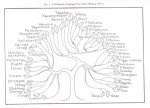
July 17, 2000 By MO1
“PHILIPPINE LANGUAGE TREE”, William Henry Scott (1984)
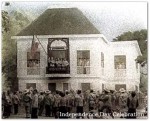
June 10, 2001 By MO1
June 12 as Independence Day by Diosdado Macapagal Former President of the Philippines “A nation is born into freedom on the day when such a people, moulded into a nation by a process of cultural evolution and sense of oneness born of common struggle and suffering, announces to the world that it asserts its natural […]
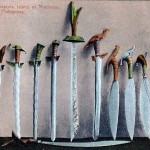
January 29, 2002 By MO1
The Moro Kris The kris is the most famous Moro weapon. Variations are found in every Moro tribe and it was a key symbol of a man’s status and rank in society as well as being a powerful talisman. Kris blades are wide at the base, double-edged, and can be waved, half-waved half-straight, or straight […]

January 26, 2003 By MO1
Inhabiting the rugged terrain of the Cordillera Region of Northern Philippines are six ethno-linguistic tribes known as the Ibaloy, Kankana-ey, Ifugao, Kalinga, Apayao/Isneg, and the Bontoc. They are referred to by a generic term, Igorot, a word coined from the root word, “golot” meaning mountain. Unlike most of the Philippines, which were ruled by Spaniards […]
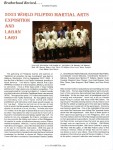
May 23, 2003 By MO1
World Filipino Martial Arts Expo 2003, Bellevue, Washington

January 28, 2005 By MO1
The Butuan Silver Strip by Hector Santos © 1996 by Hector Santos All rights reserved. http://www.bibingka.com/dahon/mystery/silver.htm The Butuan area has been a rich source of material from ancient Philippines for both treasure hunters and trained archaeologists. So it was in the mid-seventies when a team from the National Museum of the Philippines excavating a site […]

May 23, 2006 By MO1
Noli Me Tangere is a novel by Filipino polymath José Rizal and first published in 1887 in Berlin, Germany. Early English translations used titles like An Eagle Flight and The Social Cancer, but more recent translations have been published using the original Latin title. Though originally written in Spanish, it is more commonly published […]

June 21, 2007 By MO1
Cordillera Administrative Region The Cordillera Administrative Region (CAR) of the Philippines is a land-locked region consists of the provinces of Abra, Benguet, Ifugao, Kalinga, Mountain Province and Apayao. Baguio City is the regional center. The Cordillera region encompasses most of the areas within the Cordillera Central mountain range of Luzon, the largest range in the […]

January 10, 2011 By MO1
Mandirigma Research Organization/Mandirigma.org, a project of Kapisanang Mandirigma, is a research organization dedicated to cultural research. Their focus includes preserving and promoting the Warrior Arts of the Philippines commonly known as Kali, Eskrima and Arnis. The Warrior Arts is one of the most important aspects of any society because its very nature is to defend […]
Copyright © 2026 · Lifestyle Theme on Genesis Framework · WordPress · Log in